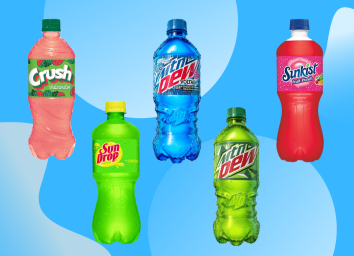8 Best Probiotic Drinks for Gut Health—and 3 You Should Avoid
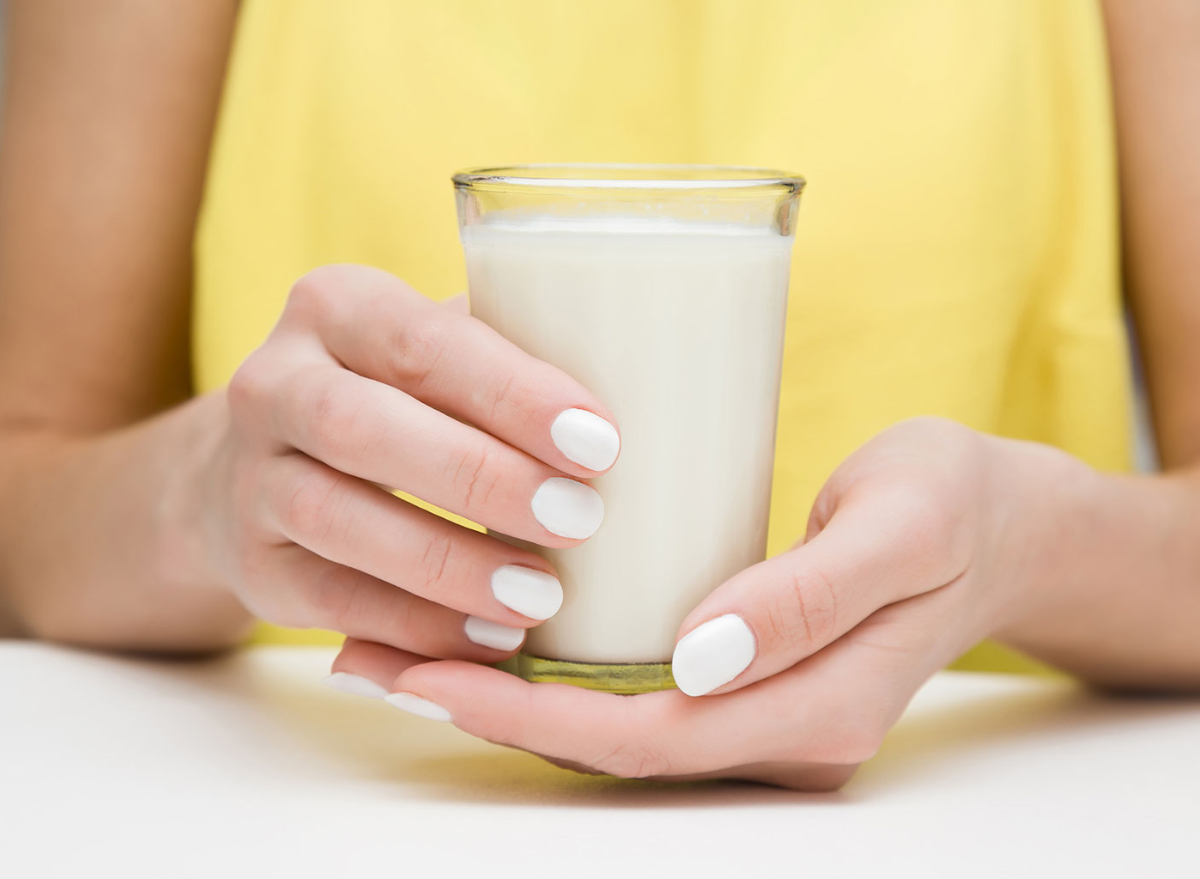
A healthy gut is linked to everything from better digestive health to lower inflammation. Because of this, the food industry has wasted no time packing good bacteria—AKA probiotics—into many of the foods we're already eating. One of the most convenient ways to work more probiotics into your diet is by sipping on a delicious probiotic drink that happens to be loaded with millions (to billions) of microscopic beneficial bacteria.
What are probiotics, and how do they work?
Probiotics are living bacteria and yeast that can help colonize different body parts, supporting a healthy microbiome. While we have good bacteria lurking everywhere on the body, the most powerful and concentrated bacteria can be found in the gut.
Two of the most common groups of probiotics include Lactobacillus and Bifidobacterium, but within these groups are many different species, and not all probiotic species act in the same way, according to the National Institutes of Health.
According to the Clevland Clinic, specific types of probiotics can also help create vitamins, help keep dangerous microbes from entering your bloodstream and making you sick, and can even help break down and absorb medications and nutrients.
Overall, probiotics can help your body maintain a positive balance of healthy bacteria so that harmful bacteria stay controlled, keeping the immune system strong. As the good bacteria colonize the gut, they ferment fibers and other indigestible foods, producing helpful substances like short-chain fatty acids, which have unique health-promoting properties.
Do probiotic drinks offer any health benefits?
Probiotic drinks are often loaded with a variety of microorganisms and also can have the added benefit of providing calories, protein, calcium, vitamin D, and several other important micronutrients.
Depending on the type of probiotic drink, you may get the same amount of microorganisms as you would with a supplement. One thing to remember is that just like a supplement, probiotic drinks aren't regulated by the FDA. So while they may have probiotics listed on the label, there's no verification that the drink actually contains as much as what it says.
What to look for in a probiotic drink
When looking for a probiotic drink, check for live active cultures on the label, which will be included in drinks with specific strains added to them. We also encourage checking the nutrition facts. Some drinks can have enough calories and macronutrients to count as a full snack, while others are essentially water with probiotics and some micronutrients added in.
The Best Probiotic Drinks You Can Buy
Here are some of the best probiotic drinks for your gut, according to dietitians.
1. Lifeway Kefir, Plain, Lowfat
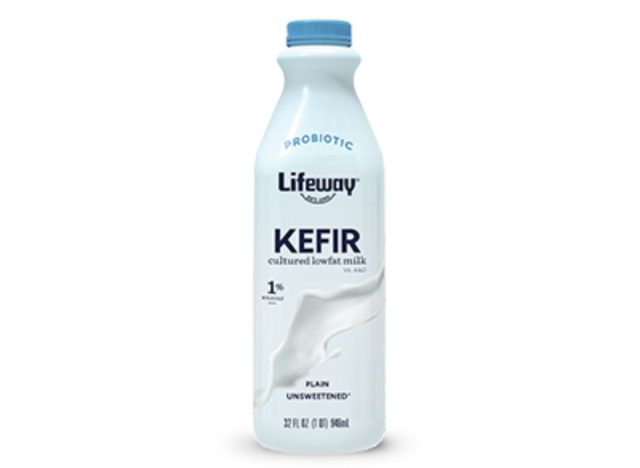
"Lifeway Kefir is a cultured milk product that's similar to a liquid yogurt drink with a bit of effervescence," says Jamie Nadeau, RDN. "This kefir has more probiotics than yogurt per serving, about 10 grams of protein per cup, and is also a great source of calcium and vitamin D."
Plain kefir is great to drink by itself or by adding it to your favorite smoothie instead of milk or yogurt.
2. GoodBelly Straight Shots
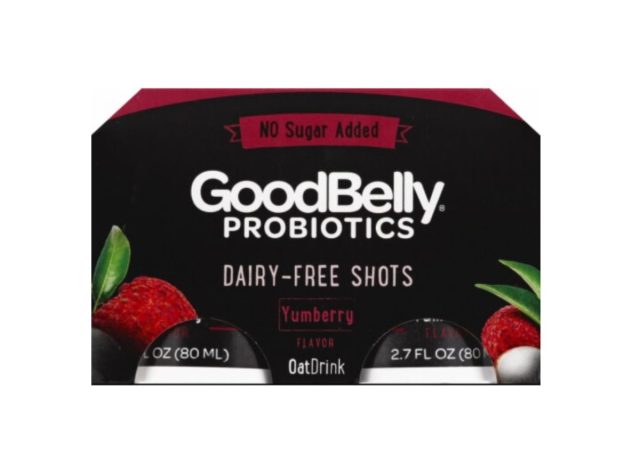
"Goodbelly Straight Shots are a game-changer for digestive health with 20 billion probiotic cultures per serving and no added sugar," says Jessie Hulsey RD, LD, an Atlanta-based registered dietitian. "The grab-and-go packaging of Straight Shots makes it effortless for individuals to incorporate these potent probiotics into their daily routine."
3. Good Culture Probiotic Milk, 2% Reduced Fat
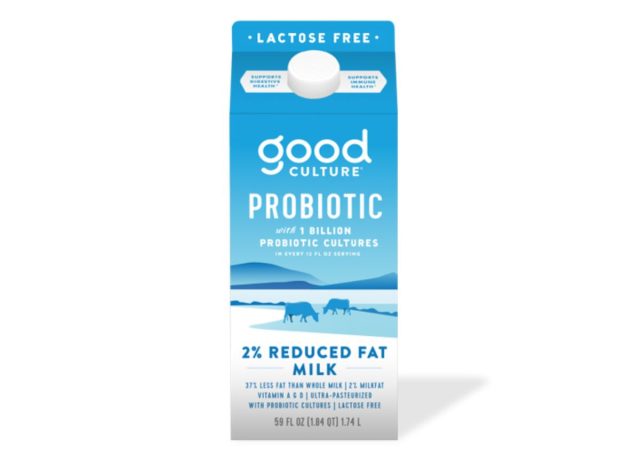
Good Culture is known for their probiotic cottage cheese, but their cultured milk is becoming just as popular. It tastes just like regular milk and can be used in all the same way, but it has 1 billion probiotic cultures in each 12-ounce serving, explains Nadeau. You also get the added benefits of vitamin D, calcium, and protein, plus, it's lactose-free, so even those who are lactose intolerant can reap the gut-healing benefits.
4. Chobani Complete Greek Yogurt Drink
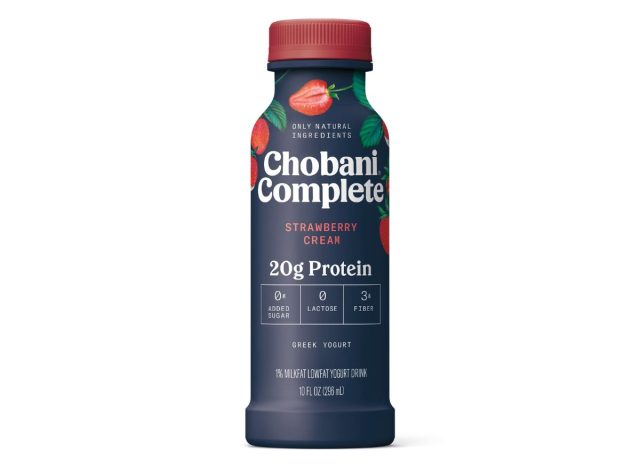
The Chobani Complete Greek Yogurt Drinks are perfect for a filling snack that also gives your gut a boost. "What's great about drinkable Greek yogurt is that it will help you build a strong microbiome while offering a big boost of filling protein, too," says Miranda Galati, RD, registered dietitian and founder of Real Life Nutritionist. While this yogurt drink does have added prebiotics, Galati recommends pairing it with fruit for an extra gut-friendly fiber boost.
5. Humm Probiotic Seltzer, Peach
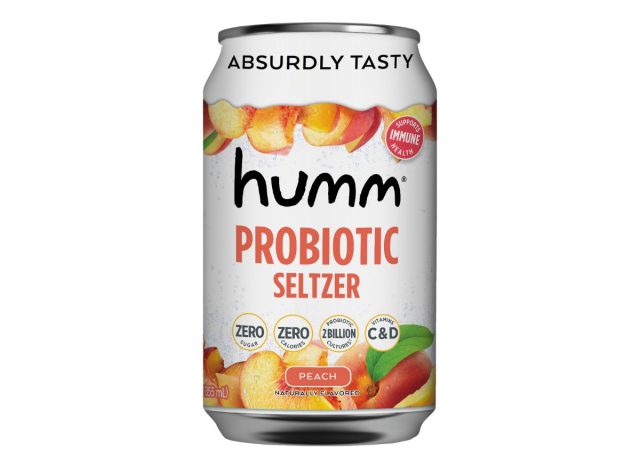
If you love the fizzy taste of seltzer, try a can of Humm Probiotic Seltzer to benefit from the 2 billion probiotics added. Each can also includes 1,500% of the DV for vitamin B12, 100% DV of vitamin C, and 150% of the DV for vitamin D to help support energy levels and a healthy immune system.
6. Health-Ade Kombucha, Pink Lady Apple
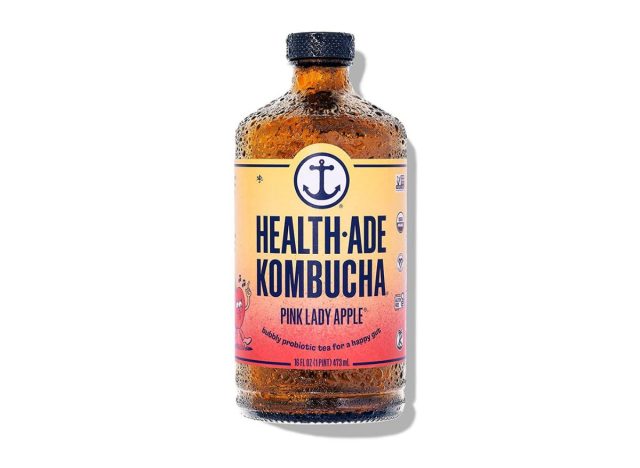
Health-Ade Kombucha is a fizzy, tart-tasting drink, brimming with gut-friendly bacteria. "As it brews, it grows gut-friendly bacteria called probiotics that can help support a diverse microbiome," says Galati. Health-Ade also adds live active cultures to their kombucha for an extra boost. "Because kombucha is made by fermenting tea, you get the gut health benefits of probiotics along with an antioxidant boost from the tea itself," Galati adds.
7. Yakult
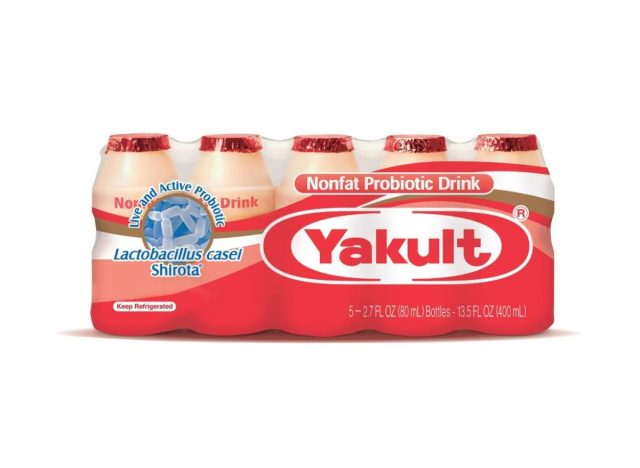
Yakult is different from other probiotic drinks because of its very specific probiotic strain, Lactobacillus casei Shirota. "This strain has been extensively studied and shown to have positive effects on the gut microbiota," says Wan Na Chun, MPH, RD.
Chun also explains that Yakult undergoes a fermentation process, which increases the number of live bacteria and enhances the survival of the probiotics through the digestive tract, so that they can reach the intestines to exert their beneficial effects.
8. Karma Blueberry Lemonade Probiotic Water
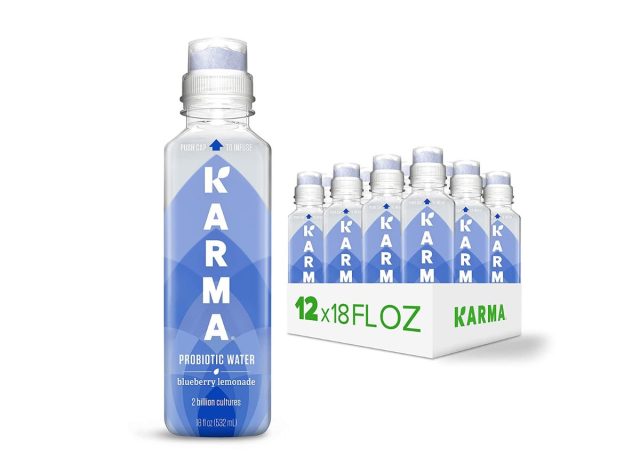
Quench your thirst and reap the benefits of the 2 billion probiotics found in a bottle of Karma Probiotic Water. "What sets this drink apart is the unique KarmaCap, which keeps the probiotics separate from the water until you're ready to drink," says Hulsey. "With a simple twist, the probiotics are released into the water, ensuring maximum potency and freshness."
Each bottle also has 100% of the DV for vitamins A, E, B6, B12, niacin, and pantothenic acid.
Probiotic Drinks to Stay Away From
Some probiotic drinks have a downside as well. Check out these drinks to limit or stay away from.
1. Tropicana Essentials Probiotic, Strawberry Banana
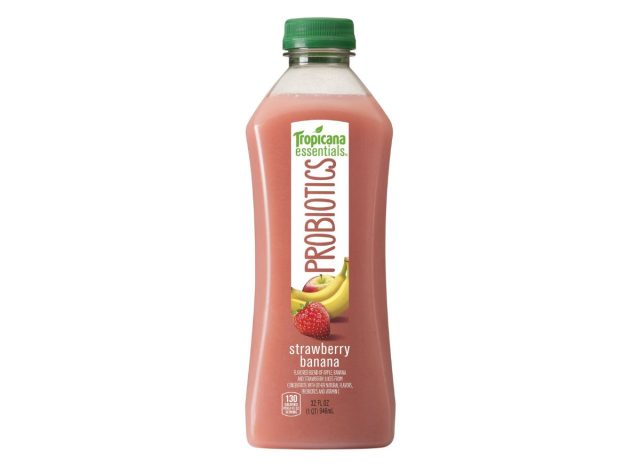
"While probiotics can offer potential benefits for gut health, the excessive amount of added sugars in this product outweigh any potential advantages," says Hulsey. While all of the sugars in this drink are naturally occurring, the overall nutrient profile is not ideal. With no protein, fat, or fiber to help slow down the digestion of the sugar, you'll be left feeling hungry soon after.
2. Harmless Harvest Strawberry Dairy-Free Yogurt Drink
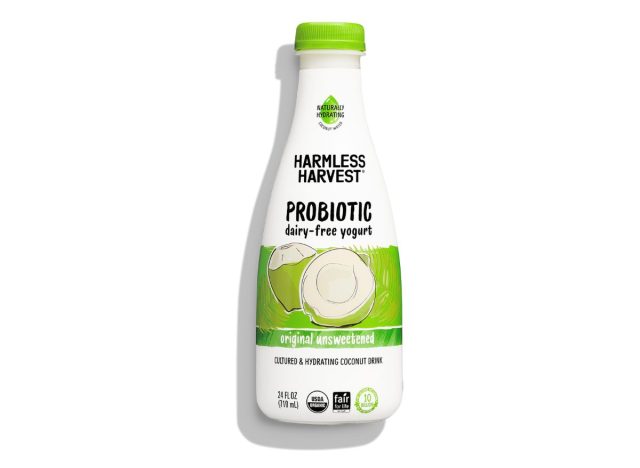
While this is a dairy-free probiotic option that packs billions of active cultures into one 8-ounce bottle, it also comes with 12 grams of added sugars. And with only 1 gram of protein, it's not nutritionally comparable to regular yogurt drinks.
3. DanActive Probiotic Dailies
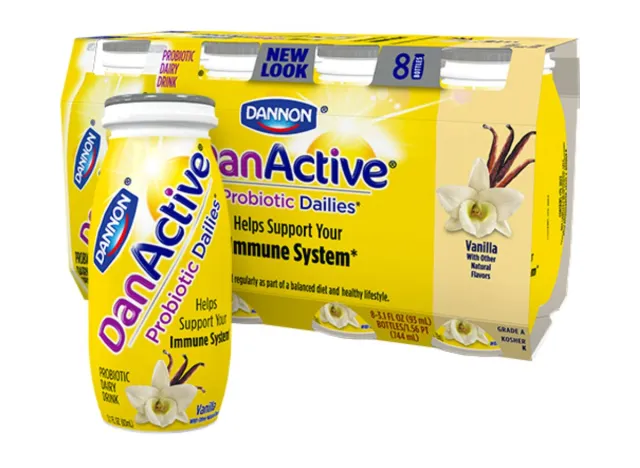
While 9 grams of added sugar may not seem outrageous, keep in mind that each serving of this drinkable yogurt is less than a half a cup. There are plenty of other drinable probiotic yogurts with less added sugar to choose from.



